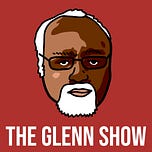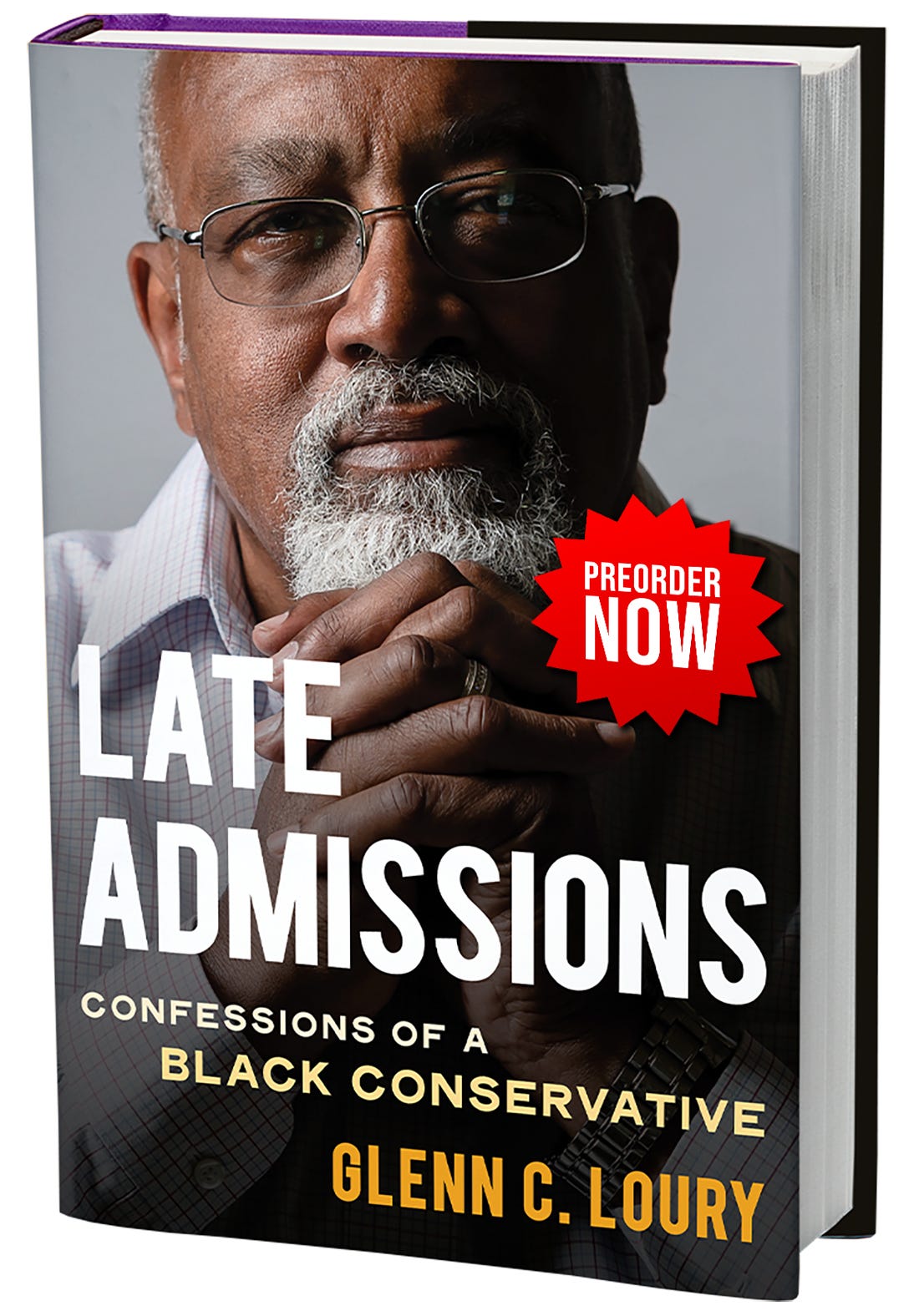If you missed Wednesday’s City Journal and Manhattan Institute-hosted livestream, I’ve got you covered. Today I’m releasing the recording of that livestream as a special bonus episode. This event marked the publication of my City Journal essay “Clarence Thomas and Me,” and I had a stellar line-up alongside me to discuss the essay and the work of Clarence Thomas: Ilya Shapiro of the Manhattan Institute, Robert George of Princeton, and Randall Kennedy of Harvard Law School. The essay concerns itself principally with Justice Thomas’s place in the African American tradition, arguing that his conservative views have unjustly excluded him from receiving his due as an African American icon. But I wanted to fill in the details of his jurisprudence, so I invited three of the sharpest legal thinkers I know to aid in that endeavor.
Do Clarence Thomas’s controversial stances render him a traitor to African Americans, as Randall claims? Or does that unfairly circumscribe the political positions available to blacks? As a friend of Thomas’s, Robbie gives us some insight into the Justice’s views on natural law and natural rights, and he explains why a commitment to originalism does not necessarily determine how a judge will rule in a given case. We reflect on some of the more consequential cases Thomas has ruled on, like Shelby County v. Holder, and we speculate on how his reputation will shake out in the decades to come.
This was a scintillating conversation, if I do say so myself. Sparks fly, and I learned much from my esteemed colleagues. I think you will as well.
This episode is free and available to the public. To receive weekly early access to TGS episodes, an ad-free podcast feed, Q&As, and other exclusive content and benefits, click below.
Sign Up for City Journal’s Newsletter
City Journal provides rigorous analysis that allows you to reach your own conclusions, rather than rehashing ideologically “safe” talking points. Explore it for yourselves and sign up for their free newsletter today.
0:00 Introductions
2:58 Why Glenn wrote “Clarence Thomas and Me”
5:27 Randall: “Justice Thomas trades on his blackness”
10:58 Glenn: Clarence Thomas has not “betrayed black people”
12:30 Thomas’s engagement with natural law jurisprudence
19:29 How would Thomas have come down on Brown v. Board of Education?
20:55 The loyalty trap
24:20 Randall: Thomas’s originalism may also commit him to sanctioning segregation
28:24 Robbie: There are originalist interpretations that support Brown v. Board of Education
34:07 Thomas’s race cases
36:03 Glenn: Thomas can act as both a principled jurist and as an advocate for the rights of African Americans
40:56 Randall: In 100 years, people will regard Shelby County v. Holder as one of the worst decisions in the Court’s history
44:36 Maintaining integrity under pressure
51:22 What are the differences between Thomas’s, Scalia’s, and Alito’s originalisms?
55:30 Will Thomas have broader popularity in the future?
1:01:10 Is racial solidarity inconsistent with judicial impartiality?
1:03:30 Closing remarks
Recorded January 17, 2024
Links and Readings
Glenn’s City Journal essay, “Clarence Thomas and Me”
Glenn’s book, One by One from the Inside Out : Essays and Reviews on Race and Responsibility in America
Michael McConnell’s article, “The Originalist Case for Brown v. Board of Education”
Randy Barnett and Evan Bernick’s book, The Original Meaning of the Fourteenth Amendment: Its Letter and Spirit
Lon Fuller’s book, The Morality of Law
The documentary on Clarence Thomas, Created Equal
Preorder Late Admissions: Confessions of a Black Conservative wherever you buy your books.















Share this post